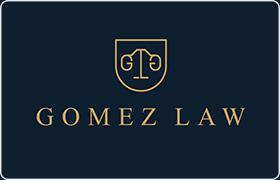Fullerton Real Estate Lawyer, California
Sponsored Law Firm
-
 x
x

Click For More Info:
-
Gomez Law, APC
3250 Wilshire Blvd Suite 1901 Los Angeles, CA 90010» view mapReal Estate Dedication. Compassion. Trust.
Whether you are looking to purchase a house or commercial property or in the process of probate, we are here to provide the legal support you need to help you move forward.
800-901-4291
Jesse Jerome Zirillo
Family Law, Corporate, Premises Liability, Wrongful Death
Status: In Good Standing
FREE CONSULTATION
CONTACTRobert A. Von Esch IV
Commercial Real Estate, Construction Contracts, Construction, Defamation & Slander
Status: In Good Standing Licensed: 21 Years
Paul Miller
Estate Planning, International Tax, Commercial Real Estate, Business, Trusts
Status: In Good Standing
Patrick Michael Hartnett
Other, Real Estate, Litigation, Business
Status: In Good Standing Licensed: 38 Years
Robert A. VonEsch
Eminent Domain, Housing & Construction Defects, Litigation, Labor Disputes
Status: In Good Standing Licensed: 68 Years
Robert Alexander Vonesch
Construction, Litigation, Business, Personal Injury
Status: In Good Standing Licensed: 21 Years
Krista Macnevin Jee
Construction, Litigation, Environmental Law Other, Administrative Law
Status: In Good Standing Licensed: 26 Years
Andrew Socratis Kalyviaris
Real Estate, Corporate, Business
Status: In Good Standing Licensed: 10 Years
 Mark Gomez Los Angeles, CA
Mark Gomez Los Angeles, CA Practice AreasExpertise
Practice AreasExpertise
